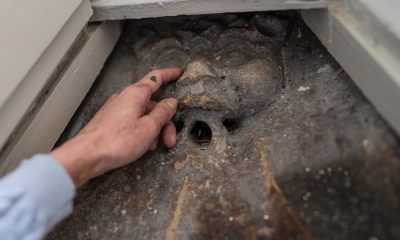By Joe Morgan via SWNS
A simple cheek swab on both moms and dads can determine whether a premature birth is likely, according to a new study.
It identifies more than 100 biomarkers that could indicate a pre-term birth.
While dads have fewer biomarkers, there are still enough to indicate a paternal role in an early birth.
Around 60,000 babies are born prematurely in the UK every year.
This means that 1 in every 13 babies born in the UK will be born premature before 37 weeks of pregnancy.
For the study, researchers found baby girls born premature carried the "preterm birth" biomarker, indicating the propensity to have a preterm baby had been passed down.
Cheek swabs taken from two groups of male-father-infants shortly after the babies were born.
In one set of 19, the infants were born premature and in another of group of 21, the babies were carried to full term.
Analysis of the swabs showed the signature was in mothers and fathers of the baby girls born prematurely, but none in the baby boys.
Early birth before 37 weeks of gestation can be fatal for infants, and many who survive face a host of health issues, some of which can follow them their entire lives, including cognitive disabilities and cardiovascular problems.
There are many risk factors that can cause preterm birth such as a twin or multiple pregnancy and the high-blood pressure condition known as preclampsia – but some early births are unexpected.
Researchers said having a diagnostic term in the first-term could allow parents to take steps to delay or prevent a preterm birth.
Professor Michael Skinner, at Washington State University, said: "The signature we found was present in all the parents we analyzed.
“This is likely to lead eventually to a very useful test. We used buccal cells, which are collected by a cheek swab.
"It's very non-invasive and easy to do.”
Prof Skinner added: “Although we may not be able to fix the problem, if we know that it's going to develop because of these diagnostics, we can treat it.
"This could help with the transition from reactionary medicine to preventive medicine.”
The study was published in the journal Scientific Reports.

 Food & Drink1 week ago
Food & Drink1 week ago
 Broadcast1 week ago
Broadcast1 week ago
 Parenting19 hours ago
Parenting19 hours ago
 Broadcast1 week ago
Broadcast1 week ago
 Broadcast3 days ago
Broadcast3 days ago
 Broadcast1 week ago
Broadcast1 week ago
 Funny1 week ago
Funny1 week ago
 Broadcast2 days ago
Broadcast2 days ago






















